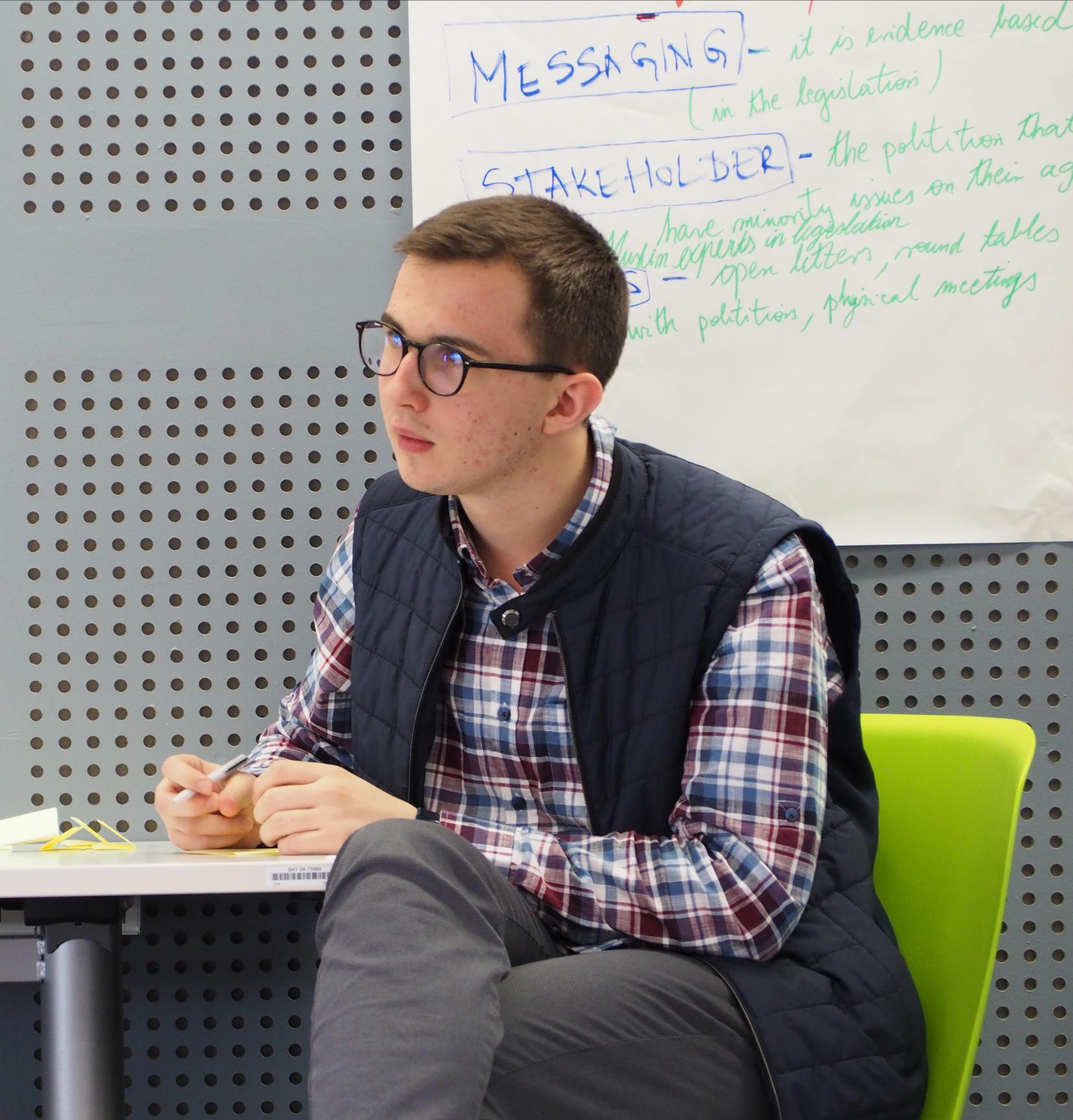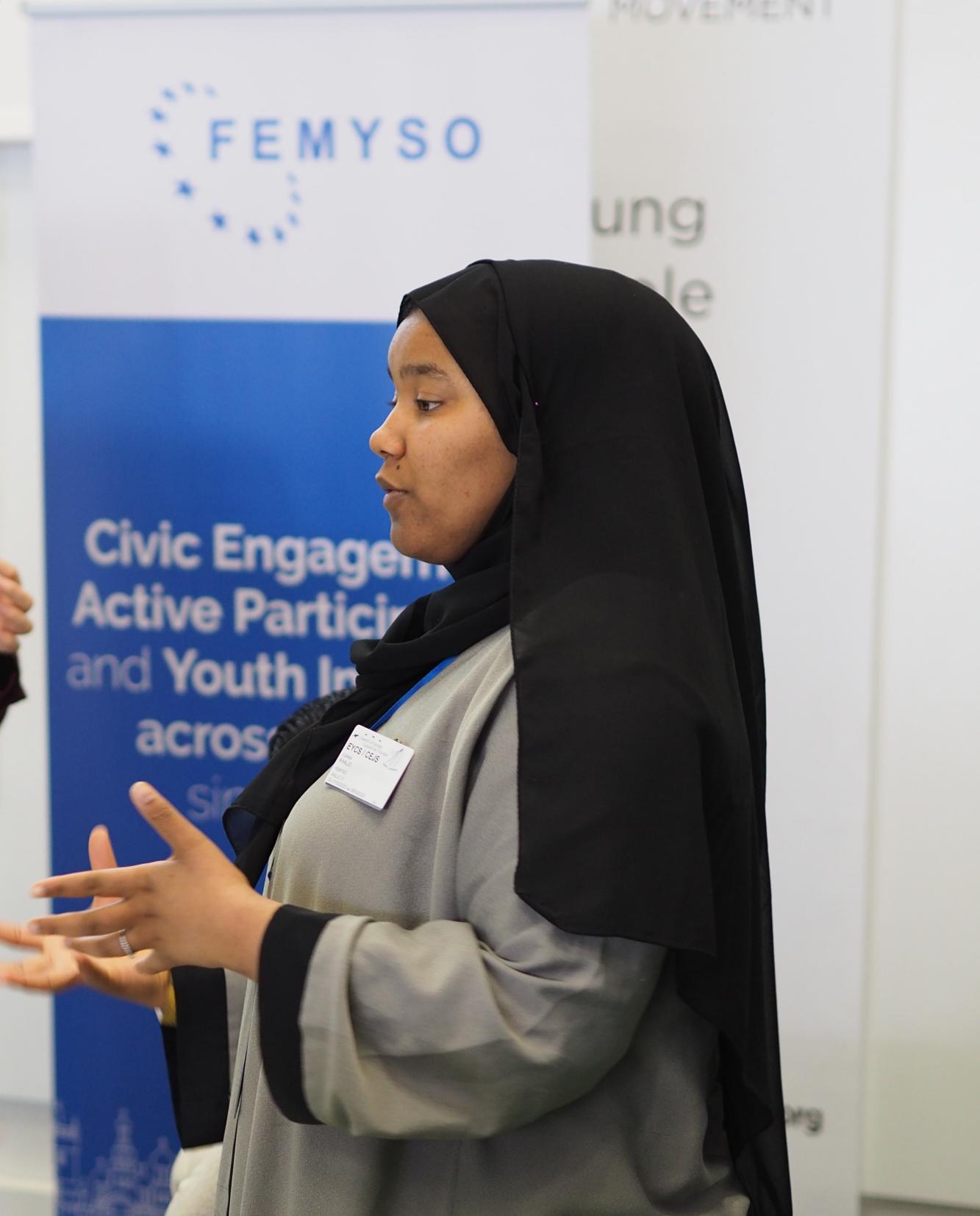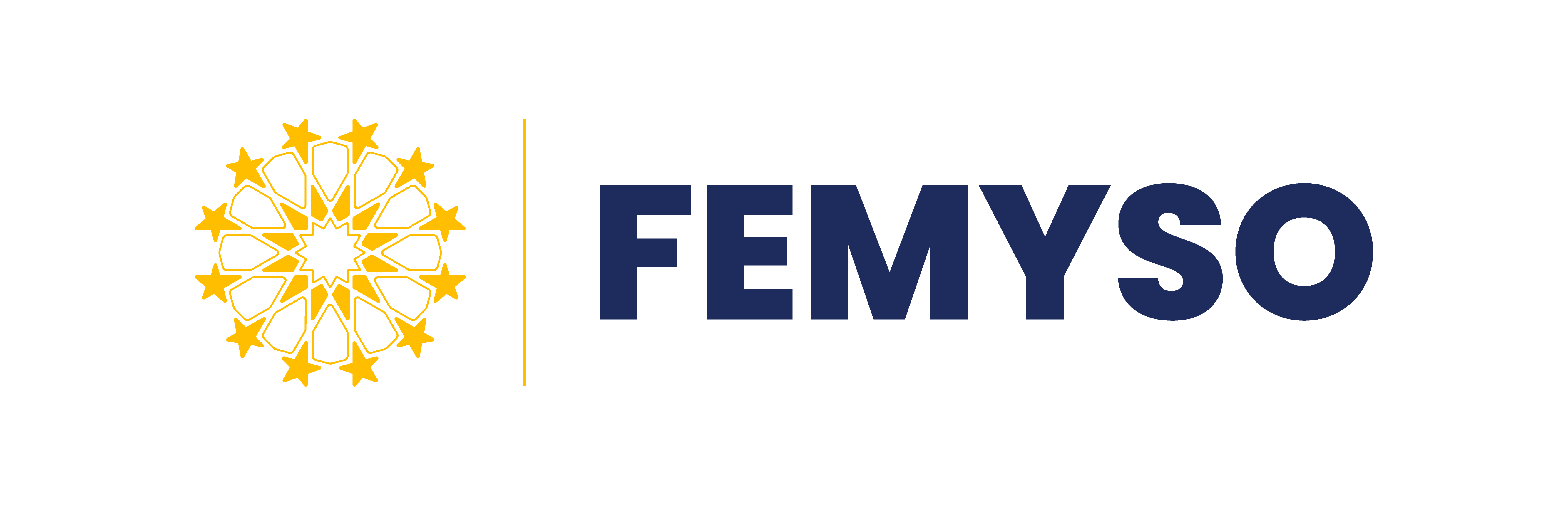OUTSPOKEN - 2020
FEMYSO’s advocacy study session, Outspoken, which took place in March 2020 at the European Youth Centre in Strasbourg brought together 30 participants from 16 different countries representing 15 MOs to learn and share skills on advocacy. It is important to note that over 175 applications were received, not only reflecting the increased demand towards FEMYSO study sessions, but also the need and interest of the European Muslim youth towards such programmes. With a focus on the rights of Muslims and minority communities, as well as youth participation, a range of sessions were organised to equip participants with the skills they expected to gain from this study session. Through non-formal education methods, they were taught skills in stakeholder mapping, advocacy, communications, and campaigning, all while delving into the topics in-depth through practical exercises. They were also introduced to the Council of Europe (CoE) as an institution, as well as the benefits and possibilities it can offer for youth such as the INGO Conference and other reports and tools. Two guests speakers, Samayya Afzal and Yusuf Hasan, attended the study session during the week to offer their expertise on working with decision-makers, on how to engage with the media and project management.
For a lot of the participants, the content delivered was very new, as well as the non-formal educational approach that was utilised. This was very successful as it allowed the delivery to be more creative and strengthened engagement with the participants consistently. This use of non-formal education methods created an ability to drive home complex concepts of advocacy in a manner where participants not only understood the content but were able to engage with it critically. This was very important for FEMYSO as it would encourage participants to think about these elements of advocacy in context to their own localities and regions, and apply and share the skills and knowledge they’ve gained which actively promotes the multiplier effect which is a key goal of FEMYSO and the Council of Europe. As this was a new style of learning for many participants, it was found that this method of learning was enjoyed especially when having discussions on how to build provisions as individual groups and collectives in areas of advocacy that include community engagement and organising, stakeholder management and monitoring, and pushing important causes with the right messages. FEMYSO and the participants were deeply appreciative of the support provided by the Council of Europe, the European Youth Centre and its dedicated youth Trainers.
The sessions built up to the designing of an advocacy project, taking into consideration all tools that were provided, and creating a solution to one of the key issues that were identified as challenges for their societies as a group. Seven groups tackled issues ranging from inclusivity in education, women in sports, mental health, environmental sustainability and consumerism, and more Muslim representation in politics and the media. The presentations were held at the Palais of the Council of Europe building. Each participant contributed from their perspective thus making the projects unique, tailored, and replicable. All participants are expected to implement them in the near future through their local youth organisations, which FEMYSO will follow up on.
Furthermore, what was extremely encouraging to see was the ability of participants to collectively work together across different parts of Europe and apply the skills that they gained from the study session. This was beautifully demonstrated during the global pandemic of COVID-19 where participants initiated the campaign ‘Outbreak of Generosity’ with the support of FEMYSO. This campaign was created to support those who were and are affected by the coronavirus pandemic. It aimed to spread messages of solidarity, purism, strength, community cohesion, and tolerance. It successfully pushed out messages that incorporated these concepts, and participants utilised tools that the study session gave them in areas of community organising, networking, and campaigning where they were able to engage a diverse range of organisations and stakeholders from across Europe to participate. It further demonstrated that the tools and knowledge they were given could help them advocate for a cause effectively with limited resources.
Overall feedback from the participants was very positive. They were able to learn and build their skills and said they are ready to take on more advocacy projects locally that address the needs of their respective communities, by structuring their messages clearly and approaching the correct stakeholders in pitching their ideas to and become part of the wider discussions


